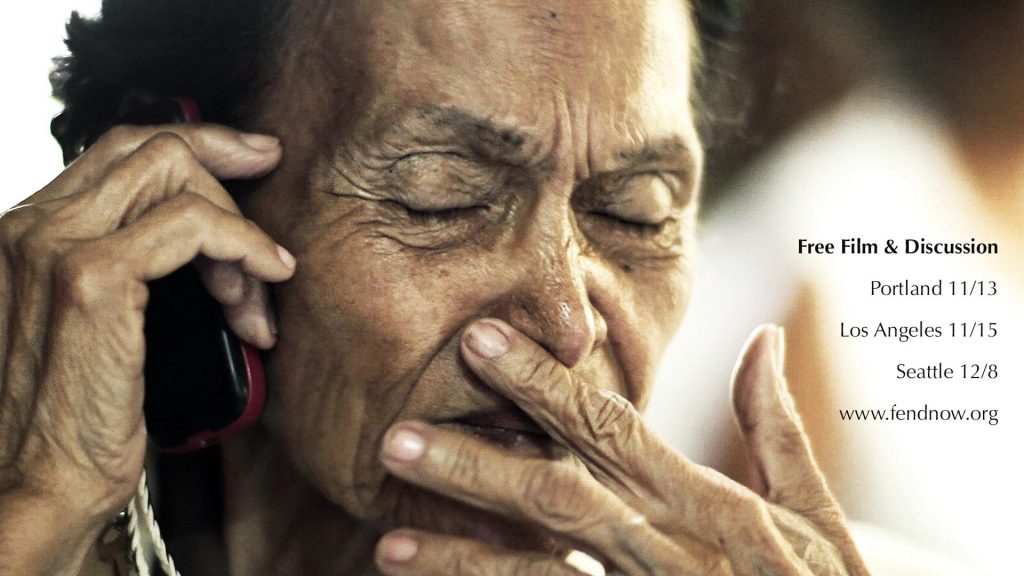Members of Central Washington University community are outraged about the upcoming film screening and lecture later this month on campus by a professional Japanese “comfort women” denier and a failed 2011 candidate for the governorship of Tokyo receiving 0.2% of the votes, Mr. Yujiro Taniyama. At the invitation of Japanese language instructor Ms. Mariko Okada-Collins, Mr. Taniyama will show his fauxcumentary “Scottsboro Girls” on April 28th and 29th at CWU, located in Ellensburg, Washington.
While Taniyama claims to introduce a new perspective that “challenges the conventional wisdom” regarding the “comfort women,” his film seems, based on the trailer posted on YouTube, to recycle the same old revisionist talking points that have been thoroughly debunked, including the oft-misrepresented 1944 U.S. military report.
In response to the upcoming events, anthropologist Dr. Mark Auslander and others have organized an academic panel to discuss the true history of “comfort women,” featuring specialists from CWU community as well as from other universities. In addition, performance arts students are putting on a public reading of the testimonies of former “comfort women” on campus to raise awareness of the issue. (Download the PDF flier of the event here.)
Mr. Taniyama and Ms. Okada-Collins insist that they are simply trying to uncover truth or to present an alternative perspective on the topic, but their reliance on misrepresentations of historical documents and contemporary scholarly works (mainly those of Korean scholars Ahn Byong Jik and Park Yuha, neither of whom actually agree with Mr. Taniyama’s or Ms. Okada-Collins’ views) prove the fundamental dishonesty of their historical revisionist project.
In recent years, Japanese far-right nationalists have declared the U.S. to be the “shusenjo,” or the main battleground, in their “history war” on “comfort women.” Their goal is to recruit as many politicians, journalists, opinion leaders, and scholars as possible to question the orthodox narrative of “comfort women” as the victims of a system of enforced military prostitution. The CWU events are a significant development in their campaign because it is the first time that a U.S. college or university allowed itself to play host to the Japanese equivalent of neo-Nazis on its campus.
The problem with giving an academic platform to historical deniers, whether they are denying crimes of the Holocaust or those of “comfort women,” is that they do not have to prove their points or convince us of their propaganda in order for them to win. They can claim victory simply by introducing enough doubt in the legitimate history; they can win simply by projecting an impression that legitimate historians might be on both sides of controversy regarding the historical crime they are denying, or by making others accept their premise that they are seeking the truth. Anything short of recognizing them as fundamentally dishonest and unscholarly political campaign is a victory for them.
There can certainly be legitimate disagreements about the exact number of “comfort women” (i.e. whether there were tens or hundreds of thousands) or the extent to which Japanese military was directly involved in the trafficking and exploitation of women in the system, but there is no disagreement among the academic community that Japanese military established, maintained, and managed a system of enforced military prostitution that relied on force, fraud, or coercion against women of its colonies and occupied territories.
We are also concerned that in a letter published on Mr. Taniyama’s website, Ms. Okada-Collins admits to teaching her version of “truth” of modern East Asian history in her classes, which includes denial of Nanjing massacre (the “Rape of Nanjing”) and “comfort women.” In the letter, she explains her belief that teaching of language must include “instructions” on culture and history, and states that she uses every opportunity in her classroom to discuss “China-centrism, colonial policy, and recent history between Japan and China/Korea.”
“Some of my students are not Americans, but Koreans, Chinese, or Taiwanese who may reject my views at first, but most of them eventually agree with me,” Ms. Okada-Collins writes. She further explains that some students have complained in the student evaluations that she is unfit as an instructor and should be fired by the university for denying historical atrocities such as the Nanjing massacre and the sexual enslavement of Korean “comfort women.”
We may or may not agree about whether or not the academic freedom protects the rights of historical revisionists to air their views on campus, but we don’t think that there is any doubt that language instructors should not be forcing her repulsive racist, sexist, revisionist views on their students, especially those who are Korean, Chinese, or Taiwanese. In fact, it may constitute a violation of students’ civil right to be free from racist and sexist practices in classrooms.
We are further alarmed that Ms. Okada-Collins have persisted in this practice despite the fact that students have formally complained about her abuse of the position. Is it a stretch to suggest that the university’s earlier failure to act on that knowledge resulted in the full-fledged historical denier event being planned on campus? We are not suggesting that Ms. Okada-Collins should be immediately fired, but we believe that she needs to be instructed to change her behavior in her classroom. Students deserve better, especially Asian and Asian American students who are directly harmed by her unprofessional behavior.
(P.S. – Can we also comment how offensive that Taniyama’s denier film’s title appropriates the case of Scottsboro Boys, the nine young Black men who were unjustly charged with raping white women in 1931 by the racist police/prosecutors and an all-white jury?)

